UCGHI Incubator Awards: 2021 Winners
The UC Global Health Institute (UCGHI) catalyzes innovation for transformative solutions to global health challenges. The UCGHI Incubator Awards are designed to support teams to develop innovative educational programs.
UCGHI launched a competitive planning grants program to provide 5 to 10 UCGHI Incubator Awards of between $5,000 and $10,000. These grants are designed to stimulate multi-campus and multidisciplinary teams that also include international partners to propose innovative strategies for addressing significant global health challenge.
Innovative Educational Programs for 2021-2022:
Food Justice & Health Equity
Our pilot COE will host a Virtual Webinar Series on Food Justice & Health Equity with interviews and discussions from researchers and activists spanning California, USA, Brazil, Caribbean, and Africa. The COE will make transformative shifts to address and resolve systemic racism within global health through a collaborative and co-design process. As an incubator and launchpad, the COE will integrate DEI in UC GHI by linking global health leaders with researchers and communities focused on food security and sovereignty. The Center will provide educational & professional growth at the intersection of race, justice, global health, and food systems.
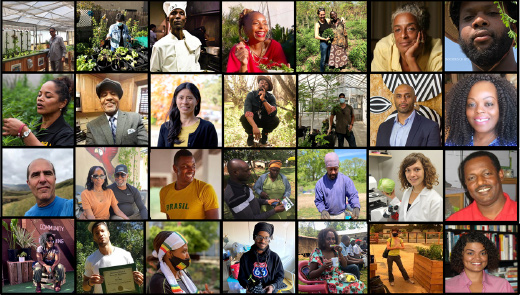
Lead UC Faculty: Carrie Waterman, PhD, Susana Matias, PhD, Amy Rowat, PhD, Hanna Garth, PhD
Participating Institutions/Partners & Topic: UC Partners: Craig Cohen, PhD, Oli Bachi, PhD, CA Partners: Christen Brown, James Brady, Ron Cooper, Kala Washington, Keith Hudson, Kimberly Wright, Edye Kuyper, Cheryl A. Branch, Derrick Chapman, US Partners: Michelle Samuel-Foo, PhD, Dr. Barry Colley, Dr. Usman Adamu, Chef Kabui, DJ CAVEM/Chef Ietef, International Partners: Gaidi Faraj, PhD, Patrick Mbullo, Anthony Akera, Renee Neblett, Rafael Peron Castro, Ryan Smith, Salim Rollins, Bryant Terry, Zion Taddese, Administrative Personnel: Jennifer Bañuelo
Global Health and Human Rights
UCSF’s Health and Human Rights Initiative strives to develop a UC-wide center of expertise (COE) for global health and human rights. Leveraging decades of expertise in healthcare, forensic asylum evaluations, mental health, immigration policy, and research, the COE aims to 1) build a pipeline of master clinicians trained to perform medical and psychological forensic evaluations of human rights violations in adults and children, 2) contribute to the limited body of research on this demographic, and 3) use such research to inform policy and advocacy efforts that are intended to improve the lives of migrating populations.
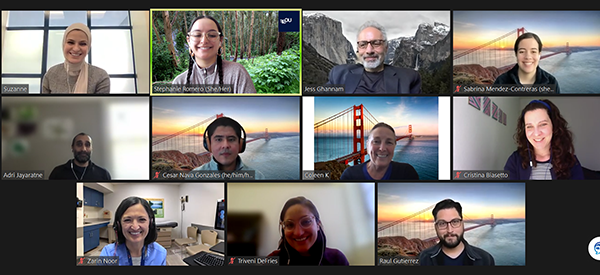
The Health and Human Rights Initiative Leadership Team: Coleen Kivlahan, MD, MSPH, Jess Ghannam, PhD, Suzanne Barakat, MD, J. Raul Gutierrez, MD, Cristina Biasetto, LCSW, William Martinez, PhD, Triveni DeFries, MD, MPH, Zarin Noor, MD, MPH, Stephanie Romero, MPA
Perioperative and Surgical Health Equity
Surgical conditions account for 30% of the global burden of disease, but in 2021, surgical and anesthesia care remain an under-supported element of the achievement of Universal Health Coverage.
The Perioperative and Surgical Health Equity Center of Expertise unites 8 UC campuses and their partners to advance equity in surgery, anesthesia, and perioperative care through ethical and innovative research, education, and community engagement. By leveraging the expertise of the UC system and its global network, the Center of Expertise will facilitate multi-directional exchange; train leading researchers and change agents; and engage in research and partnerships that center community and patient perspectives.
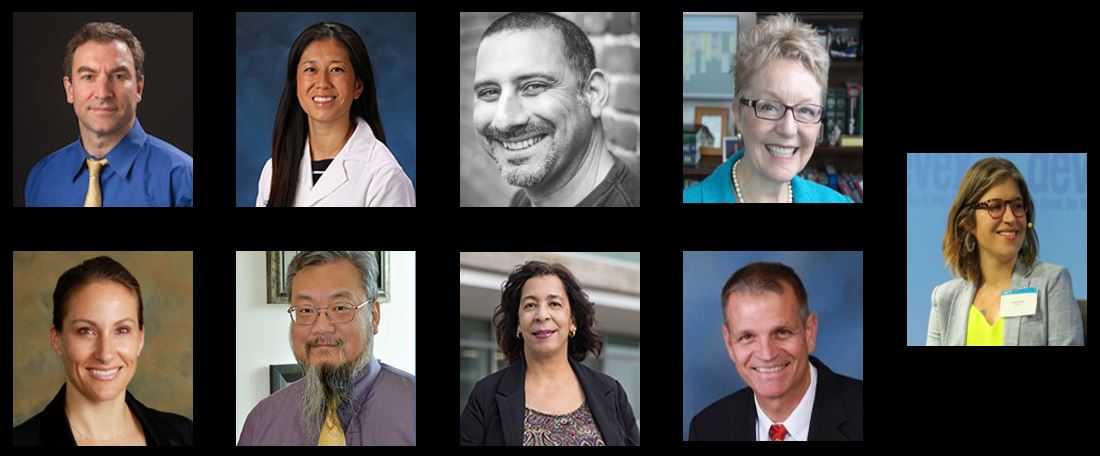
Team: Doruk Ozgediz, MD, MSc, Theresa Chin, MD, Jason Corburn PhD, MCP, Diana Farmer, MD, Catherine Juillard, MD, MPH, David Lo, MD, PhD, Thelma Hurd, MD, MPH, Stephen Bickler, MD, Lauren Wall
Accelerating Implementation Science and Research Translation for Global Health Delivery and Diplomacy
UC has an astounding breadth and depth of research and knowledge innovations around implementation science, economics, and global health policy spanning many disciplines. Our collective potential to provide trans-disciplinary research and technical expertise to partners outside of academia to influence global health delivery and diplomacy is unmatched. The aim of this collaboration is to explore how we might develop a service/knowledge hub that will accelerate system-wide efforts to facilitate knowledge exchange, build UC-wide capacity for policy-engaged research, accelerate the research-to-use pathway, foster trans-disciplinary research collaborations, and increase global policy dialogue.
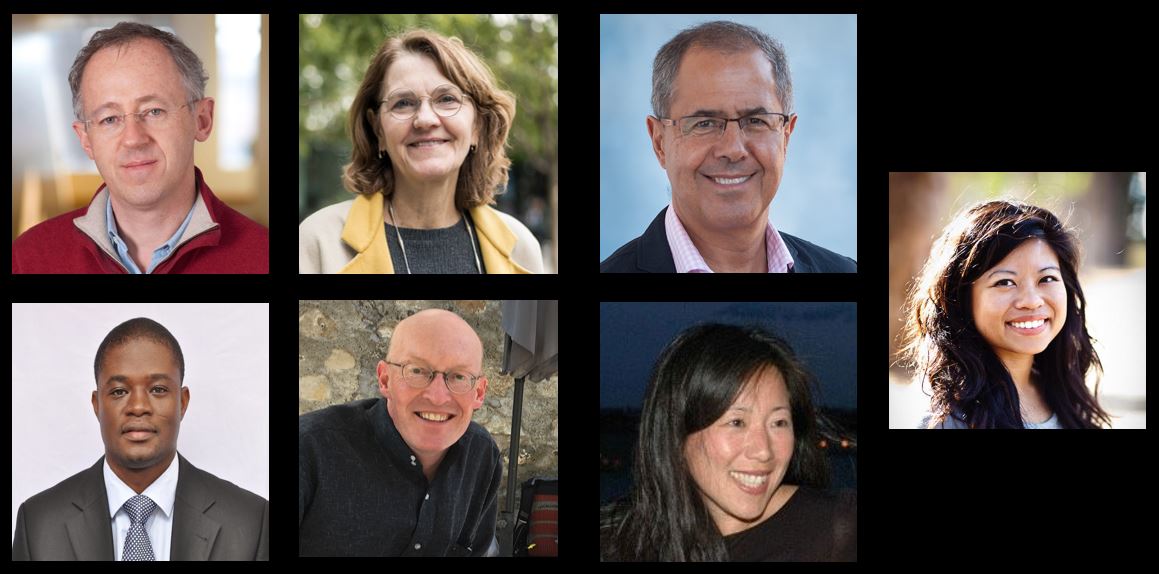
Team: Stefano Bertozzi, MD, PhD, Dilys Walker, MD, Rafael Fernández de Castro, PhD, Amos Laar, PhD, MPH, MA, Matt Sparke, PhD, MA, Hannah Park, Hildy Fong Baker
Advancing Research and Education Efforts to Decolonize Global Health Across all UC Campuses
There has been significant but underappreciated discontent among public global health practitioners in low- and middle-income over the discriminatory activities of funding agencies, universities, and individuals from high-income countries for centuries. There have been recent calls for the decolonization of global health, and the re-examination of assumptions and practices underpinning global health partnerships. This 12-month initiative with two inter-linked paths (Research and Education) will support and promulgate cross-campus efforts to build a Center of Excellence Focused on Global Health Equity.
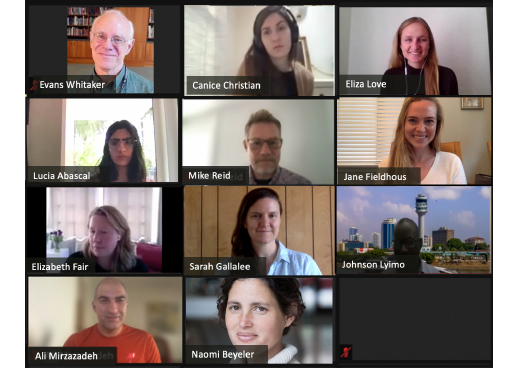
Research path team: Elizabeth Fair (lead), Ali Mirzazadeh (co-lead), Lucia Abascal, Canice Christian, Jane Fieldhouse, Sarah Gallalee, Johnson Lyimo, Evans Whitaker
Education path team: Mike Reid (lead), Eliza Love, Naomi Beyeler
Community-University Partnership to Develop Cultural Humility Training for Researchers and Health Providers
COVID-19 and continued assaults on BIPOC communities have magnified gaps in public health infrastructure and exacerbated the inequities that disproportionately affect vulnerable populations. For researchers and practitioners, implicit bias training and community-based participatory research can be effective at reducing discriminatory behaviors and connecting with communities as partners to address health issues. However, to be maximally impactful, we need to be sensitive to the lived reality of members of affected communities and be equipped with skills to deliver trauma-informed care and practice founded on principles of cultural humility. This community-academic partnership will develop a training program that reduces the risk of perpetuating implicit biases and avoids amplifying the structural inequities that undermine current public efforts.
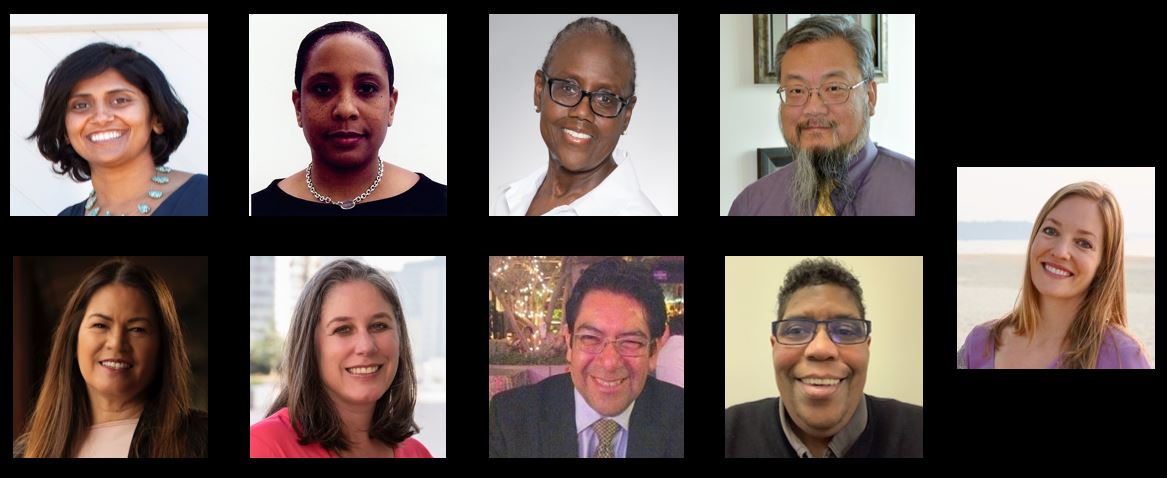
Faculty Leads: Madhavi Dandu, MD, MPH, Kelly Taylor, PhD, MPH
Faculty Partners/Leads–UC and HBCU: Cynthia Davis, MPH, DHL, David D. Lo, MD PhD, Juliet McMullin, PhD, Shira Shafir, PhD, MPH
Community Partners: Gerry Balcazar, Schon Wade, EdD, Miranda Westfall, PhD(c), MPH, RD
Latin American Pandemic Coalition (LAPC)
The Latin American Pandemic Coalition (LAPC) seeks to create a Latin America focused learning collaborative for pandemic preparedness and response. The Coalition will forge deeper connections between UC researchers and Latin American partners. We aim to champion 5 streams of collaborative work including: 1) public and clinical health workforce development; 2) supporting evidence to action policy initiatives throughout Latin America; 3) coordinate and foster research partnerships that advise decision makers of localized strategies to mitigate the pandemic; 4) create a learning collaborative and community of practice for partners and UC collaborators to learn from and champion each other’s work and through these work streams 5) support faculty development to foster talent that will be well poised to address the next pandemic.
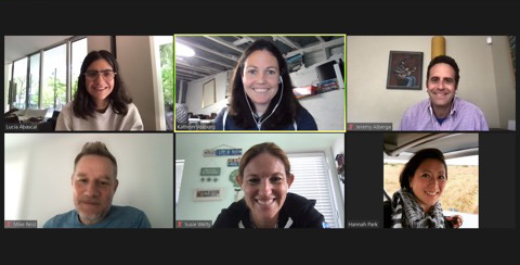
Latin American Pandemic Coalition team(left to right): Top Row-Lucia Abascal Miguel, Katy Vosburg, Jeremy Alberga; Bottom Row-Mike Reid, Susie Welty, Hannah Park. Not pictured: Kelly Sanders, Evelyn Wong, Alina Dorian and Mike Prelip
News
From Seed Funding to Global Impact: Three Multi-Campus University of California-Based Initiatives Drive Health Equity
In 2021, the UC Global Health Institute launched the Incubator Awards program which is a competitive planning grants program that provided up to $10,000 in funding for multi-campus and multidisciplinary initiatives in the initial phase of the program and an additional $30,000 for three multi-campus teams. Here is an overview of their work from 2021 to present and what they aim to tackle in the future.
